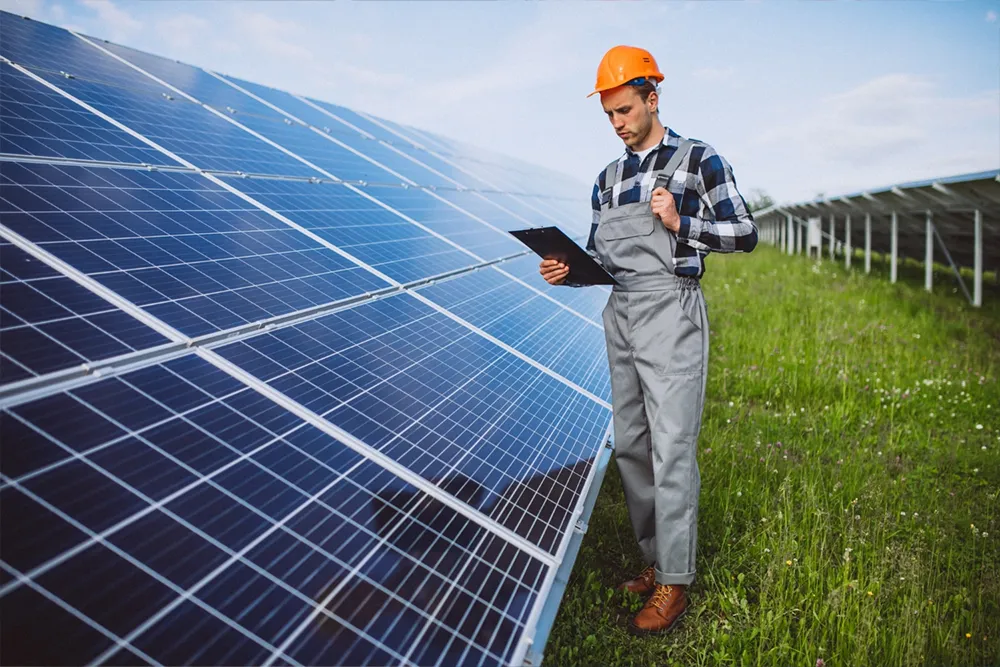Thinking about investing in a solar inverter for your home? It’s a big decision, and you want to make sure it’s the right one for your wallet and your energy needs. Let’s break down what solar inverters actually do, how they benefit you, and whether they’re worth the money.
What Exactly Does a Solar Inverter Do?

Here’s the quick answer:
A solar inverter Glasgow takes the electricity your solar panels generate (which is DC—direct current) and turns it into the kind of electricity your home actually uses (AC—alternating current).
Why does this matter?
Because without an inverter, all that clean solar energy just sits there, unused. It’s the heart of your solar system!
Types of Solar Inverters
There’s more than one kind, and the type you pick can influence your system’s performance:
– String Inverters:
Most budget-friendly. Connects a bunch of panels in a “string.” Works best if your panels get the same amount of sun.
– Microinverters:
One for each panel. Great if some panels are shaded or face different directions.
– Power Optimizers:
A hybrid approach; boosts efficiency on each panel, but still uses a central inverter.
Tip: If your roof gets patchy sunlight, microinverters or power optimizers might be worth the extra spend.
Why Bother With a Good Inverter?
Here’s what a quality inverter brings to the table:
– More Power, Less Waste:
Converts more of your solar energy into usable electricity, so you get more bang for your buck.
– Energy Independence:
Rely less on the grid, especially during peak times or blackouts.
– Grid Support:
Some inverters help balance the electricity grid—a bonus for everyone.
– Real-Time Monitoring:
Many models let you track your system’s performance from your phone or computer.
What About the Cost?
Let’s talk numbers. Solar inverters aren’t exactly cheap, but there’s more to the story than just the price tag.
Upfront Costs
– Gear + Installation:
The price varies by type (string inverters are usually cheapest, microinverters cost more).
– Quality Counts:
Spending a bit more upfront on a reliable brand can save you headaches and repair bills later.
Long-Term Savings
– Lower Power Bills:
A high-quality inverter means more efficient energy use, which means smaller electricity bills.
– Fewer Repairs:
Good inverters last longer and break down less often.
Financing & Incentives
– Tax Credits:
The federal tax credit (ITC) can knock a chunk off your costs.
– Loans & Leases:
Don’t have all the cash upfront? There are financing options to fit most budgets.
What Should You Think About Before Buying?
Don’t just grab the first inverter you see! Here are some things to consider:
– Your Energy Needs:
How much power do you use daily?
– Compatibility:
Does the inverter work with your solar panels (and any future upgrades)?
– Features:
Things like smart monitoring, built-in safety features, and warranty length.
– Efficiency:
Look for models with at least 95% efficiency.
Comparing Brands and Models
All inverters are NOT created equal. Here’s what to look at:
– Brand Reputation:
Choose brands known for reliability and good customer service.
– Warranty:
Longer is better! Some brands offer up to 10-12 years or even more.
– Efficiency & Output:
Higher efficiency means your system works better.
– Price:
Don’t just go for the cheapest—balance cost with features and warranty.
Keeping Your Inverter in Top Shape
Some basic maintenance goes a long way:
– Regular Inspections:
Check for dust, dirt, or loose connections.
– Monitoring:
Use built-in apps or displays to keep an eye on performance.
– Firmware Updates:
Keep the software up to date (just like your phone!).
A little care can help your inverter last 10-15 years or even longer.
The Green Factor: Environmental Benefits
A well-maintained inverter isn’t just good for your wallet—it’s good for the planet.
– Maximizes Clean Energy Use:
Squeezes more usable electricity out of every ray of sunshine.
– Reduces Carbon Footprint:
Less reliance on fossil fuels, fewer emissions.
– Promotes Sustainable Living:
Efficient systems = less waste.
So… Is a Solar Inverter Worth It?
Here’s the bottom line:
– If you want to get the most out of your solar panels, a good inverter is a must.
– It boosts your system’s efficiency, saves you money over time, and helps you live a little greener.
– The right inverter can also future-proof your system as your energy needs change.
Still not sure?
Think about how much sunlight your home gets, your typical energy use, and your budget. If you’re serious about solar, a quality inverter is a smart investment.